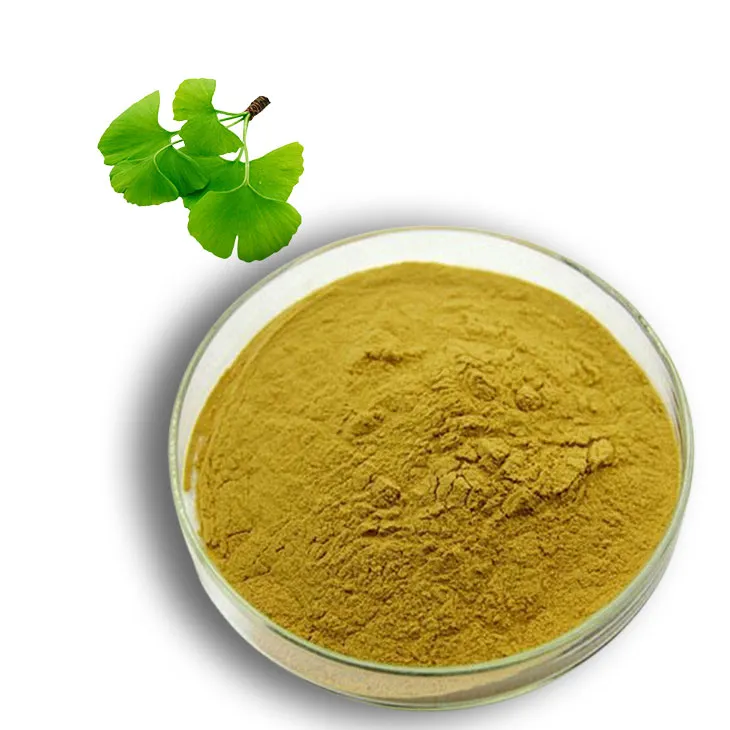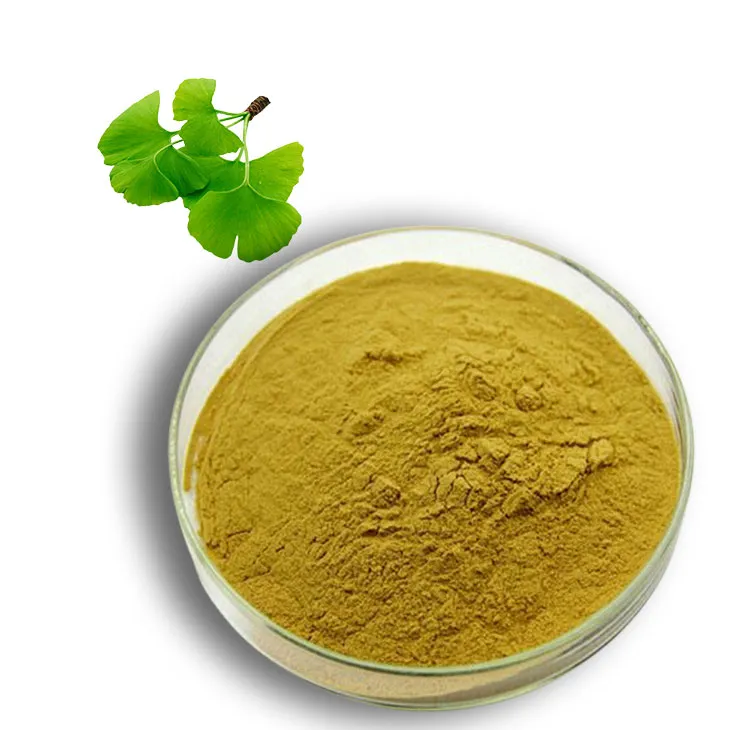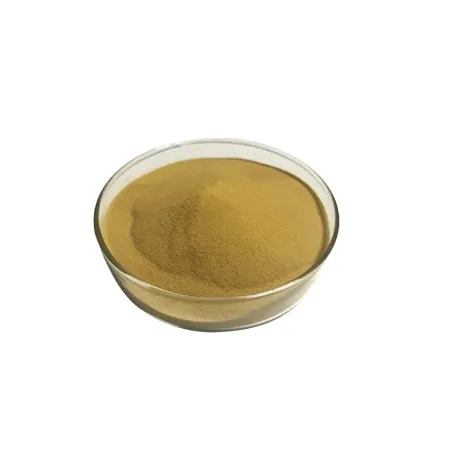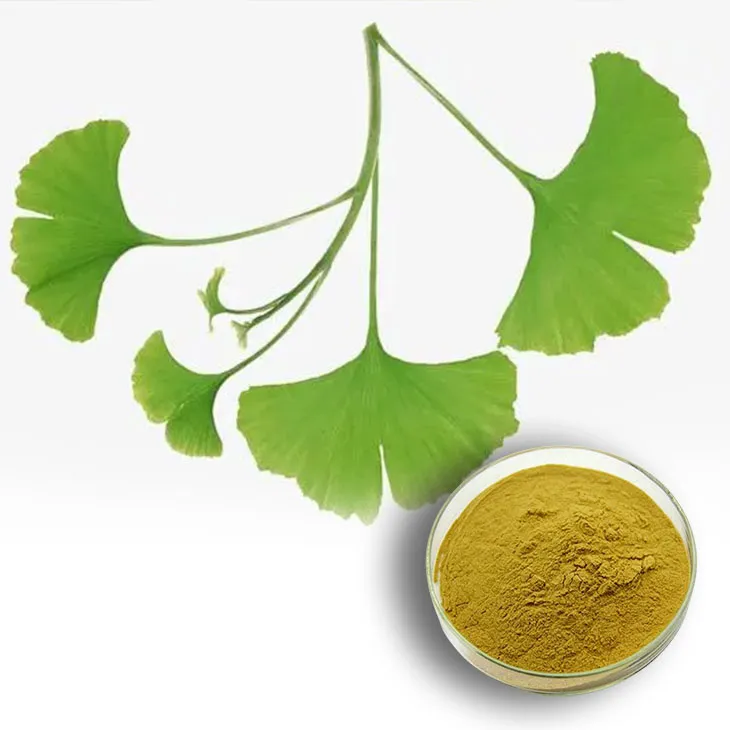- 0086-571-85302990
- sales@greenskybio.com
Ginkgo biloba extract: Benefits and consumption guidelines.
2024-11-14

1. Introduction
Ginkgo biloba, often referred to as a "living fossil," has been used in traditional medicine for centuries. The extract of Ginkgo biloba has gained significant popularity in modern times. It is derived from the leaves of the Ginkgo biloba tree, which is native to China but now cultivated in many parts of the world. This extract is rich in various bioactive compounds that are believed to offer a wide range of health benefits. As more people are becoming interested in natural remedies for health improvement, understanding the benefits and proper consumption of Ginkgo biloba extract is of great importance.

2. Health Benefits of Ginkgo biloba Extract
2.1 Cognitive Enhancement
One of the most well - known benefits of Ginkgo biloba extract is its potential for cognitive enhancement.
- Memory improvement: Studies have suggested that Ginkgo biloba extract may help improve memory, especially in older adults. It is thought to enhance the blood flow to the brain, which in turn can support better neural function related to memory.
- Attention and concentration: Some evidence indicates that it can also have a positive impact on attention and concentration. This may be beneficial for students, workers who need to stay focused for long periods, and those with mild attention - deficit problems.
- Protection against cognitive decline: As people age, there is an increased risk of cognitive decline and neurodegenerative diseases such as Alzheimer's and Parkinson's. Ginkgo biloba extract contains antioxidants that may help protect brain cells from oxidative stress, potentially reducing the risk of these conditions.
2.2 Antioxidant Properties
Ginkgo biloba extract is rich in antioxidants, which play a crucial role in maintaining overall health.
- Free radical scavenging: Antioxidants in the extract, such as flavonoids and terpenoids, can scavenge free radicals. Free radicals are unstable molecules that can cause damage to cells, DNA, and tissues. By neutralizing these free radicals, Ginkgo biloba extract helps protect the body from oxidative damage.
- Anti - inflammatory effects: Oxidative stress is often associated with inflammation. The antioxidant properties of Ginkgo biloba extract may also contribute to reducing inflammation in the body. This can be beneficial for various conditions related to chronic inflammation, such as arthritis and certain cardiovascular diseases.
2.3 Potential for Circulatory Improvement
The extract has the potential to improve circulatory function in several ways.
- Vasodilation: Ginkgo biloba extract can cause vasodilation, which means it relaxes the blood vessels and allows for better blood flow. This is important for delivering oxygen and nutrients to all parts of the body and removing waste products.
- Platelet aggregation inhibition: It may also inhibit platelet aggregation. Platelets are cells in the blood that can clump together and form blood clots. By reducing platelet aggregation, Ginkgo biloba extract can help prevent the formation of dangerous blood clots that can lead to heart attacks and strokes.
- Peripheral circulation: For people with poor peripheral circulation, such as those with diabetes or Raynaud's disease, Ginkgo biloba extract may improve blood flow to the extremities, reducing symptoms like cold hands and feet.

3. Consumption Guidelines for Ginkgo biloba Extract
3.1 Dosage
The appropriate dosage of Ginkgo biloba extract can vary depending on several factors.
- For general health benefits: A typical dosage for general health maintenance is usually around 120 - 240 mg per day. This can be taken in divided doses throughout the day.
- For specific conditions: If using Ginkgo biloba extract for a specific condition, such as cognitive impairment or circulatory problems, the dosage may need to be adjusted. In some cases, higher dosages up to 600 mg per day may be recommended, but this should be done under the supervision of a healthcare provider.
3.2 Forms of Consumption
Ginkgo biloba extract is available in various forms.
- Capsules and tablets: These are the most common forms of Ginkgo biloba extract. They are convenient and easy to take. When choosing capsules or tablets, it is important to look for a reputable brand that provides a standardized amount of the active ingredients.
- Tinctures: Ginkgo biloba tinctures are liquid extracts. They are usually taken by adding a few drops to a beverage. Tinctures may be absorbed more quickly by the body compared to capsules and tablets.
- Tea: Ginkgo biloba tea is also available. However, the concentration of the active ingredients in tea may be lower compared to other forms. Brewing a cup of Ginkgo biloba tea can be a pleasant and relaxing way to consume the extract, but it may not provide as high a dose as capsules or tinctures.
3.3 Precautions
While Ginkgo biloba extract is generally considered safe for most people, there are some precautions to keep in mind.
- Interaction with medications: Ginkgo biloba extract may interact with certain medications. For example, it can increase the risk of bleeding when taken with blood - thinning medications such as warfarin or aspirin. It is important to inform your healthcare provider if you are taking any medications before starting Ginkgo biloba extract.
- Allergic reactions: Some people may be allergic to Ginkgo biloba. Allergic reactions can range from mild skin rashes to more severe symptoms such as difficulty breathing. If you experience any signs of an allergic reaction after taking Ginkgo biloba extract, stop use immediately and seek medical attention.
- Pregnancy and breastfeeding: There is not enough evidence to determine the safety of Ginkgo biloba extract during pregnancy and breastfeeding. It is generally recommended that pregnant and breastfeeding women avoid using Ginkgo biloba extract to be on the safe side.

4. Conclusion
Ginkgo biloba extract offers a variety of potential health benefits, including cognitive enhancement, antioxidant protection, and circulatory improvement. However, it is important to follow the proper consumption guidelines to ensure safety and effectiveness. As with any supplement, it is advisable to consult a healthcare provider before starting Ginkgo biloba extract, especially if you have underlying health conditions or are taking other medications. By using Ginkgo biloba extract responsibly, it may be a valuable addition to a healthy lifestyle.

FAQ:
What are the main benefits of Ginkgo biloba extract?
Ginkgo biloba extract has several main benefits. It is known for its cognitive - enhancing properties, which may help improve memory, concentration, and overall mental function. It also has antioxidant properties that can protect cells from damage caused by free radicals. Additionally, it has the potential to improve circulatory function by promoting blood flow, which can be beneficial for heart health and may also help with conditions related to poor circulation, such as cold hands and feet.
How does Ginkgo biloba extract enhance cognitive function?
The exact mechanism by which Ginkgo biloba extract enhances cognitive function is not fully understood. However, it is thought to increase blood flow to the brain, which can supply more oxygen and nutrients. It may also interact with neurotransmitters in the brain, potentially improving communication between nerve cells. Some studies suggest that it can have a positive impact on memory, attention, and mental alertness, especially in older adults or those with mild cognitive impairment.
What are the antioxidant properties of Ginkgo biloba extract?
Ginkgo biloba extract contains flavonoids and terpenoids, which are compounds with antioxidant properties. These antioxidants work by neutralizing free radicals in the body. Free radicals are unstable molecules that can cause damage to cells, DNA, and proteins. By reducing the number of free radicals, Ginkgo biloba extract can help protect cells from oxidative stress, which is associated with various diseases such as heart disease, cancer, and neurodegenerative disorders.
How should Ginkgo biloba extract be consumed for maximum benefit?
For maximum benefit, it is important to follow the recommended dosage instructions. The appropriate dosage can vary depending on factors such as age, health status, and the specific product. Generally, it is advisable to start with a low dose and gradually increase if needed. Ginkgo biloba extract can be taken in the form of supplements, which are available in capsules, tablets, or liquid form. It is typically recommended to take it with food to improve absorption. It is also important to consult a healthcare provider before starting to take Ginkgo biloba extract, especially if you have any underlying health conditions or are taking other medications.
Are there any side effects of Ginkgo biloba extract?
While Ginkgo biloba extract is generally considered safe for most people when taken as directed, some potential side effects may occur. These can include mild gastrointestinal issues such as nausea, vomiting, or diarrhea. In some cases, it may also cause headaches, dizziness, or allergic reactions. Additionally, Ginkgo biloba extract can interact with certain medications, such as blood thinners, so it is important to inform your healthcare provider if you are taking any medications before starting to use it.
Related literature
- The Effects of Ginkgo biloba Extract on Cognitive Function: A Systematic Review"
- "Antioxidant Properties of Ginkgo biloba: A Review of the Evidence"
- "Ginkgo biloba and Circulatory Health: Current Research Findings"
- ▶ Hesperidin
- ▶ citrus bioflavonoids
- ▶ plant extract
- ▶ lycopene
- ▶ Diosmin
- ▶ Grape seed extract
- ▶ Sea buckthorn Juice Powder
- ▶ Beetroot powder
- ▶ Hops Extract
- ▶ Artichoke Extract
- ▶ Reishi mushroom extract
- ▶ Astaxanthin
- ▶ Green Tea Extract
- ▶ Curcumin Extract
- ▶ Horse Chestnut Extract
- ▶ Other Problems
- ▶ Boswellia Serrata Extract
- ▶ Resveratrol Extract
- ▶ Marigold Extract
- ▶ Grape Leaf Extract
- ▶ blog3
- ▶ blog4
- ▶ blog5
-
Organic Tongkat Ali extract powder factory.
2024-11-14
-
How to make powder with ashwagandha extract.
2024-11-14
-
Rosehip extract manufacturers from China.
2024-11-14
-
The best cat's claw extract in nature.
2024-11-14
-
Chinese Dandelion Leaf Extract Suppliers.
2024-11-14
-
Sugarcane Extract
2024-11-14
-
White Willow Bark Extract
2024-11-14
-
Almond Extract Powder
2024-11-14
-
Ginseng Root Extract
2024-11-14
-
Eyebright Extract
2024-11-14
-
Andrographis Paniculata Extract Powder
2024-11-14
-
Hesperidin
2024-11-14
-
Curcuma Longa Extract/Turmeric extract
2024-11-14
-
Hawthorn powder
2024-11-14
-
Lotus leaf extract
2024-11-14





















